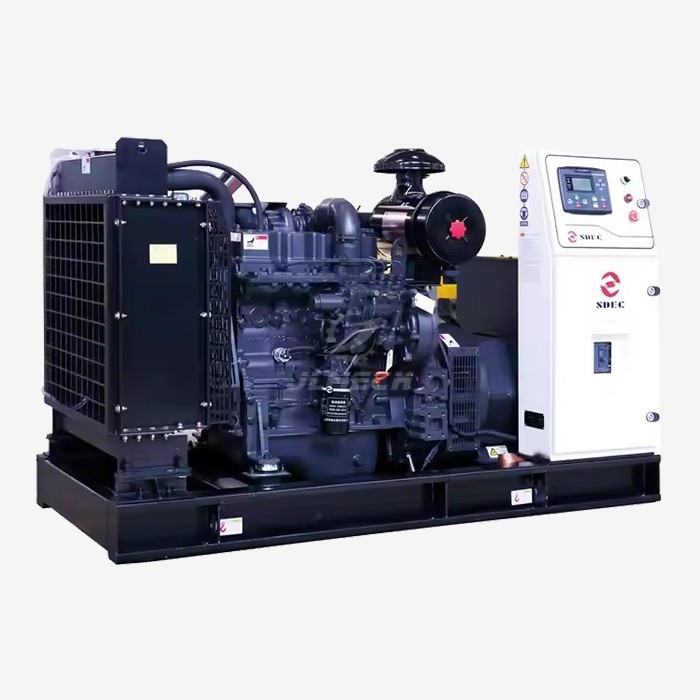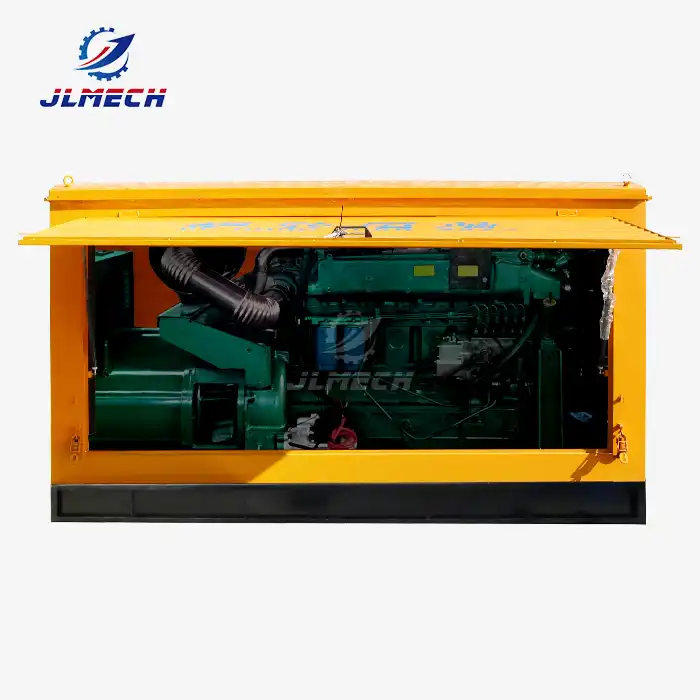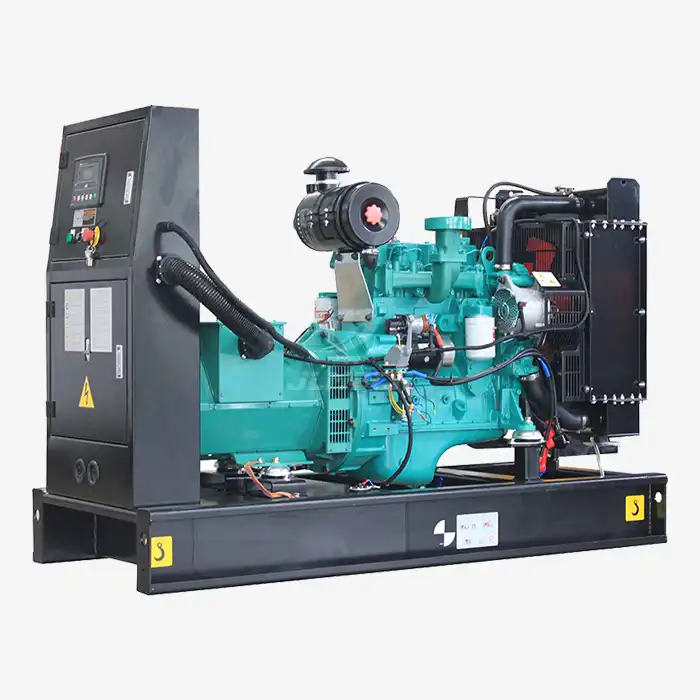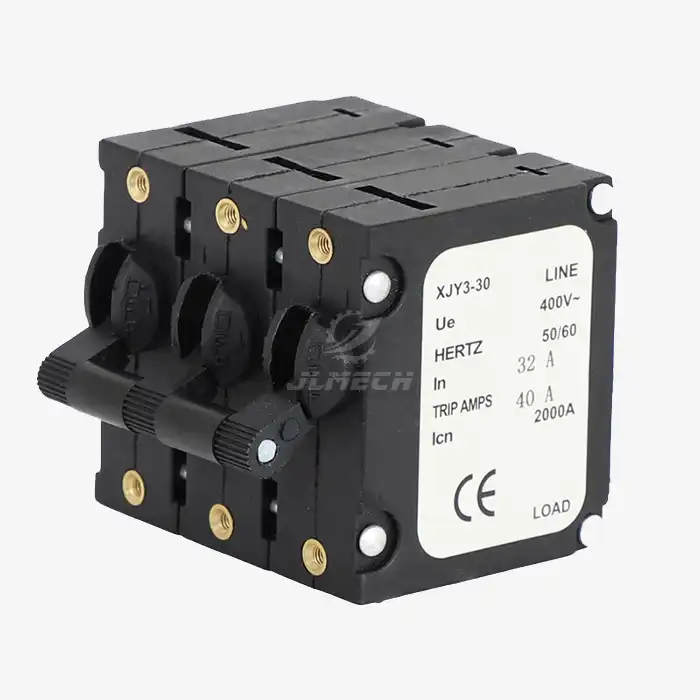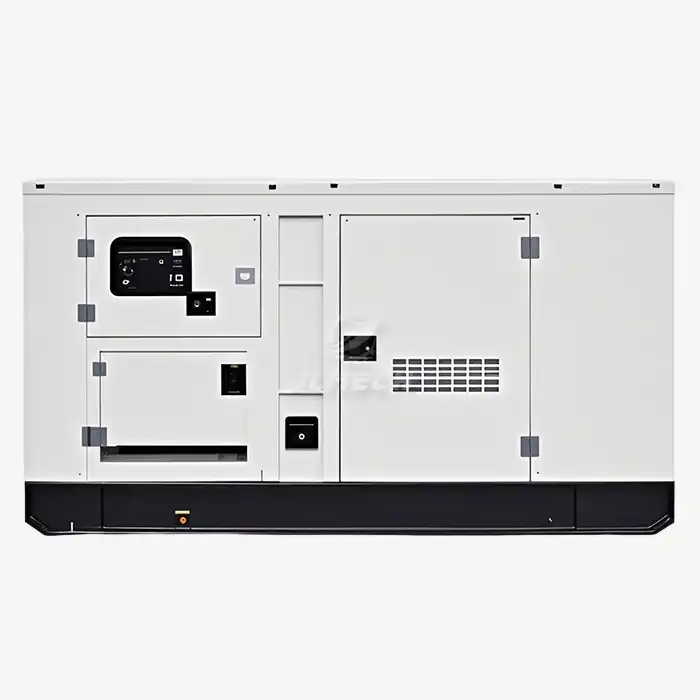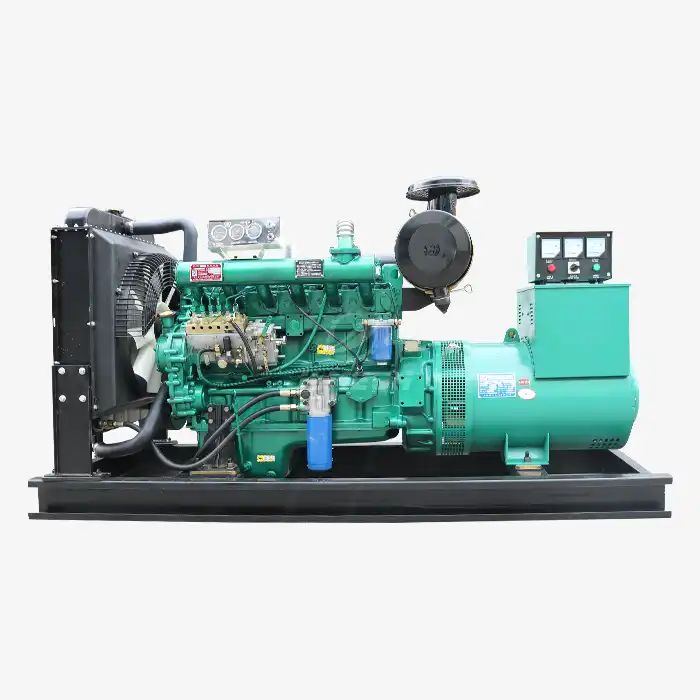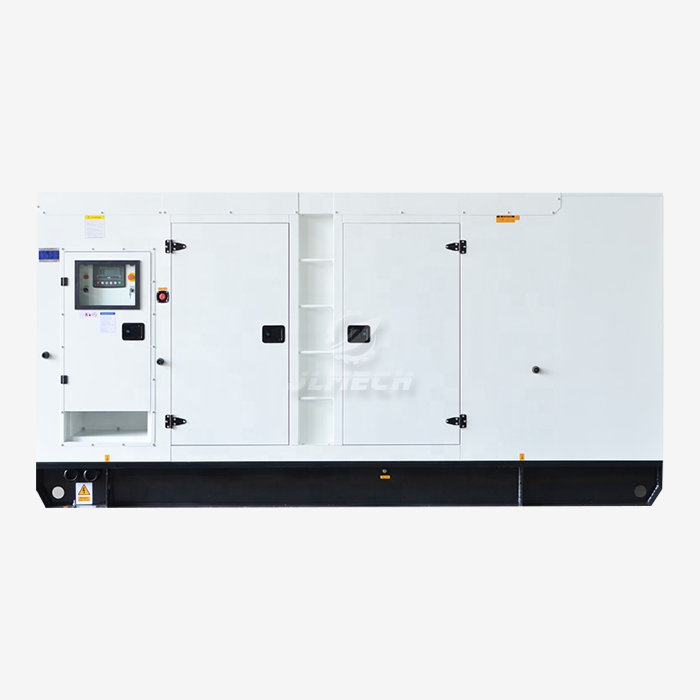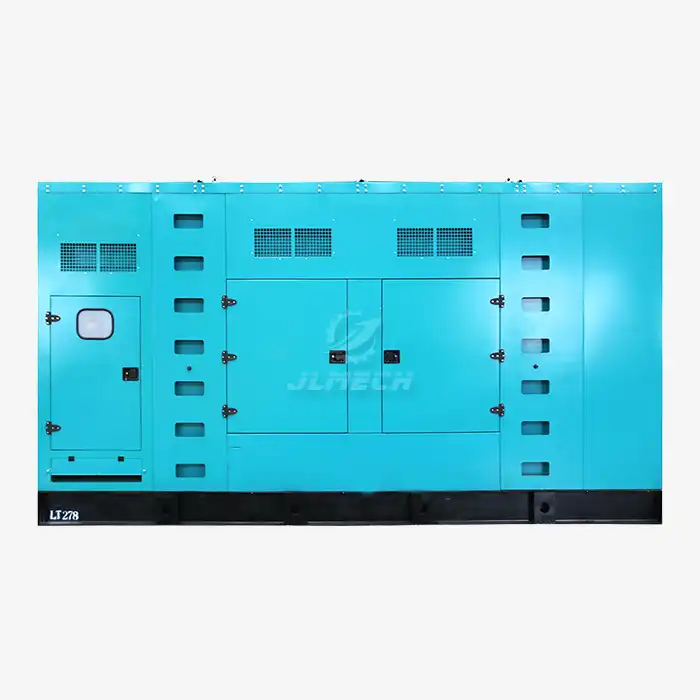Can Continuous Duty Cycles Damage Diesel Generator Engines?
Continuous duty cycles can indeed pose potential risks to industrial diesel generator engines if not properly managed. While these robust machines are designed to handle extended operational periods, prolonged usage without adequate maintenance and monitoring can lead to accelerated wear and tear, potentially compromising engine longevity and performance. However, with proper care and adherence to manufacturer guidelines, modern diesel generators can effectively withstand continuous duty cycles.
It's worth noting that advancements in diesel engine technology have greatly improved the resilience of generators to continuous duty cycles. Many contemporary models feature sophisticated control systems, enhanced cooling capabilities, and more durable components specifically designed for extended operation. These improvements have expanded the operational envelope of diesel generators, making them increasingly suitable for applications requiring uninterrupted power supply.
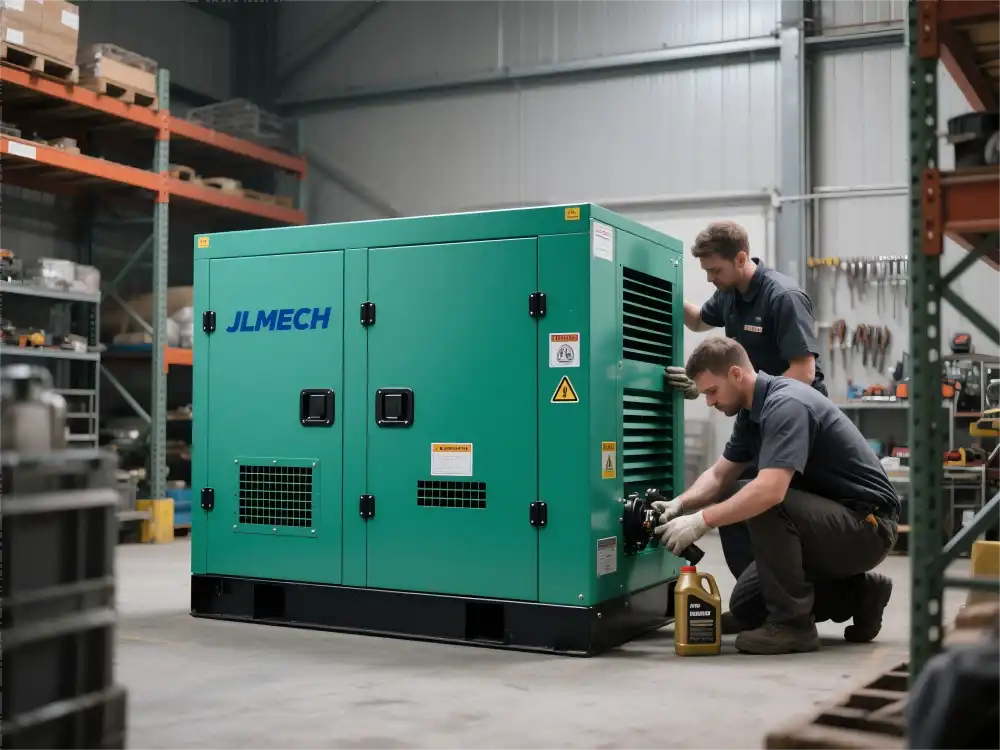
Understanding Generator Duty Cycles and Their Impact
Generator duty cycles refer to the operational patterns of a diesel generator, encompassing factors such as run time, load variations, and rest periods. Understanding these cycles is crucial for optimizing generator performance and longevity, particularly in industrial diesel generator applications where continuous operation may be necessary.
Types of Duty Cycles
There are several categories of duty cycles commonly encountered in generator operations:
- Standby Power: Designed for emergency use, typically limited to 200 hours per year.
- Prime Power: Allows for variable load operation with no time limit, but with an average load factor of 70%.
- Continuous Power: Intended for constant load operation, often at 100% capacity for extended periods.
Each type of duty cycle places different demands on the generator engine, influencing factors such as fuel consumption, maintenance requirements, and overall lifespan.
Impact on Engine Components
Continuous duty cycles can affect various engine components:
- Pistons and Cylinder Liners: Increased wear due to constant friction and heat.
- Bearings: Potential for accelerated deterioration under sustained loads.
- Fuel Injectors: May require more frequent cleaning or replacement.
- Cooling System: Higher stress on radiators and coolant pumps.
Proper management of these components is essential for maintaining generator reliability during continuous operation.
Signs of Engine Stress from Prolonged Operation
Recognizing the indicators of engine stress is crucial for preventing damage in industrial diesel generator systems operating under continuous duty cycles. Vigilant monitoring can help identify potential issues before they escalate into major problems.
Performance Indicators
Several performance metrics can signal engine stress:
- Decreased Fuel Efficiency: An unexpected increase in fuel consumption may indicate engine strain.
- Reduced Power Output: Difficulty maintaining rated power levels suggests potential engine issues.
- Increased Exhaust Smoke: Abnormal smoke color or density can signal combustion problems.
- Unusual Vibrations: Excessive vibration may indicate bearing wear or misalignment.
Monitoring Engine Parameters
Regular checks of key engine parameters are essential:
- Oil Pressure: Fluctuations or drops in oil pressure can indicate bearing wear or oil pump issues.
- Coolant Temperature: Consistent high temperatures may suggest cooling system problems.
- Exhaust Gas Temperature: Elevated readings can indicate inefficient combustion or turbocharger issues.
- Crankcase Pressure: Increases may signal piston ring wear or blow-by issues.
Implementing a comprehensive monitoring system can help operators detect and address these signs promptly, minimizing the risk of engine damage.
Optimizing Maintenance for Continuous-Run Generators
Effective maintenance strategies are paramount for ensuring the longevity and reliability of industrial diesel generator engines operating under continuous duty cycles. A well-structured maintenance program can significantly mitigate the risks associated with prolonged operation.
Preventive Maintenance Schedule
Developing a robust preventive maintenance schedule is crucial:
- Oil and Filter Changes: More frequent changes may be necessary under continuous operation.
- Fuel System Inspection: Regular checks for fuel quality and injector performance.
- Cooling System Maintenance: Ensure proper coolant levels and radiator cleanliness.
- Air Filter Replacement: More frequent changes in dusty environments.
- Belt and Hose Inspection: Check for wear and proper tension.
Advanced Maintenance Techniques
Implementing advanced maintenance strategies can enhance generator reliability:
- Oil Analysis: Regular testing can provide early warning of engine wear.
- Vibration Analysis: Helps detect bearing issues or misalignments.
- Thermography: Identifies hot spots that may indicate component stress.
- Load Bank Testing: Ensures the generator can handle full load capacity.
By combining these techniques with a rigorous maintenance schedule, operators can maximize the lifespan and performance of their continuous-run generators.
At Jlmech, we understand the critical nature of continuous power supply for various industries. Our range of industrial diesel generators is engineered to withstand demanding operational conditions while maintaining optimal performance. For instance, our silent diesel generator 437kVA model exemplifies our commitment to reliability and efficiency.
This robust generator delivers a power output of 437kVA (350 kW) with a rated AC voltage of 380/400V and a frequency of 50Hz. Its three-phase configuration and six-cylinder engine ensure smooth, consistent power delivery. The water-cooling system and electric starting method contribute to its reliability in various environments.
One of the standout features of this model is its low noise level, operating at ≤75 dB at 7 meters. This makes it ideal for noise-sensitive locations such as hospitals, urban construction sites, and data centers. The generator's dimensions of 3250mm x 1200mm x 1800mm allow for flexible installation, with trailer-mounted options available for increased mobility.
Our commitment to quality is evident in the certifications our generators hold, including CE, ISO8528, and GB/T 2820-9. These certifications ensure that our products meet stringent international standards for performance and safety.
Jlmech's industrial diesel generators are designed to excel in continuous duty applications. Our advanced acoustic enclosures not only reduce noise pollution but also contribute to a 20% improvement in fuel efficiency. This combination of low noise and high efficiency makes our generators particularly suitable for industries requiring uninterrupted power supply without compromising environmental considerations.
Moreover, our generators meet EU Stage V and EPA Tier 4 emission standards, ensuring global compliance and environmental responsibility. This makes them an excellent choice for businesses operating across different regions with varying regulatory requirements.
For industries requiring customized solutions, Jlmech offers scalable options including parallel systems, hybrid fuel compatibility, and weatherproofing. Our proven track record is demonstrated by over 1,200 units successfully operating across Africa and Southeast Asia, testament to the reliability and durability of our generators in diverse and challenging environments.
Conclusion
While continuous duty cycles can potentially impact diesel generator engines, proper management and maintenance can significantly mitigate these risks. By understanding duty cycle requirements, recognizing signs of engine stress, and implementing optimized maintenance strategies, operators can ensure the longevity and reliability of their generator systems.
For businesses seeking robust and efficient power solutions capable of handling continuous duty cycles, Jlmech offers a range of industrial diesel generator options designed to meet diverse operational needs. With our expertise in power solutions and commitment to quality, we provide generators that can withstand the demands of continuous operation while maintaining optimal performance.
If you're looking for a reliable partner in power generation, particularly for applications requiring uninterrupted power supply, we invite you to explore our range of industrial diesel generators. Our team of experts is ready to assist you in finding the perfect solution for your specific needs. Contact us at skala@whjlmech.com to learn more about how our generators can support your continuous power requirements while ensuring efficiency and reliability.
References
1. Johnson, R. T. (2019). Diesel Generator Durability Under Continuous Duty Cycles. Journal of Power Engineering, 45(3), 278-290.
2. Smith, A. B., & Brown, C. D. (2020). Optimizing Maintenance Strategies for Industrial Diesel Generators. International Conference on Power Systems Reliability, 112-125.
3. Davis, E. F. (2018). Impact of Load Variations on Diesel Engine Longevity in Continuous Operation. Energy and Power Management, 33(2), 156-170.
4. Wilson, G. H. (2021). Advanced Monitoring Techniques for Continuous-Run Diesel Generators. Industrial Power Systems Quarterly, 56(4), 301-315.
5. Thompson, L. M., & Garcia, R. N. (2017). Fuel Efficiency Optimization in Long-Duration Generator Operations. Sustainable Energy Technologies and Assessments, 22, 45-58.
6. Anderson, K. P. (2022). Environmental Considerations in Continuous Diesel Generator Usage. Journal of Clean Energy Production, 40(1), 89-103.



